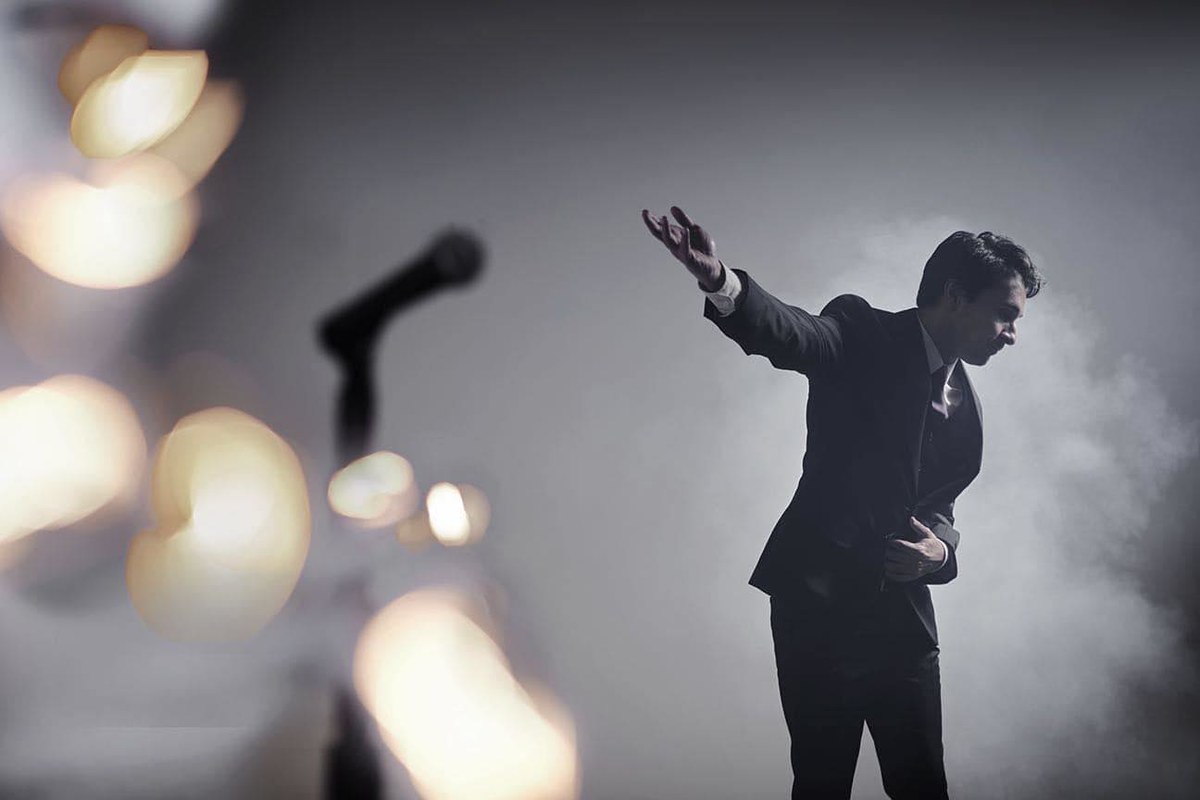ISLAMABAD: It was a dark time in Pakistan when stand-up comedian Saad Haroon returned home after completing his education from the University of Massachusetts Amherst in 2001.
In a post-September 11 world, it was a nation divided over whether Pakistan should be involved in the United States’ war on terror or not. The war in neighboring Afghanistan led to a sudden rise in the number and scale of terror attacks in the country. The conflict in the region also hit major sectors of the economy, and trading activities were widely disrupted. And as Haroon would find out in the years to come, things would only get worse and laughter would turn out to be the best medicine.
“Little did I know that I would need a lot of comedy over the years because we’ve been dealing with kind of a situation after situation,” Haroon, now one of Pakistan’s best-known English language comedians, told Arab News in an interview in Karachi. “And I was like, ‘Okay, I can use comedy to really make people feel better’.”

The undated file photo shows Pakistani comedian Saad Haroon. (Photo courtesy: Saad Haroon)
Haroon is the creator of the first ever Pakistani improvizational comedy troupe “BlackFish” and was the first Pakistani stand-up comedian to perform in English in cities across Pakistan in his tour, “Saad Haroon: Very Live.” He has many other accolades to his name, including being voted the “Second Funniest Person in the World” during the first Laugh Factory worldwide competition held in 2014.
But carving a niche as a comedian in Pakistan — and that too in the English language which is spoken by less than five million people in a country of 241 million — was no easy task. The learning curve was improvizational, with Haroon and his peers trading cassette tapes of international comedians to learn the tricks of the trade. And given the political chaos around him, it was no surprise that Haroon quickly turned to political satire, using comedy to make people laugh but also to make them understand the complexities of life.
“I could wax eloquent about these very difficult things that have been happening and it was fun and it was good,” he said, adding that political satire was “cathartic” and a “coping mechanism.”
“And sometimes the audience finds it fun. Sometimes they find it incredibly dark and it’s still rewarding.”
But does he ever get into trouble with his jokes?
“Well, my job is to push those boundaries and sometimes I don’t censor myself and I get in trouble,” Haroon said, recalling the backlash he received for writing a song named “Burqa Woman.”
“BLASKFISH”
Venturing into a full-time career as a comedian as far back as 2002, Haroon became aware of many sad realities about Pakistan’s creative industry, including that there were no quality writers.
“Because there’s not much art, it means that we don’t actually have a system to create that art, which means we don’t have writers,” the comedian said.
That’s why improvizational comedy became the answer.
“I was like, ‘Okay, if you don’t have writers, how do we do comedy without writers? Let’s do improv’.”
Thus was born BlackFish in 2002, but that was not without its challenges, not least of them the language barrier and the inability to generate money.
“I think we charged a whopping Rs100 [36 cents] per ticket,” Haroon joked. “So, I couldn’t pay anyone in the troupe. I would collect the money in the kitty and then we’d go for dinner sometimes.”
Blaskfish continued for a few years before Haroon quit and started doing solo stand-up comedy shows.
Next Haroon created and hosted the first ever English language comedy television show in Pakistan called The Real News in 2007.
“That was political satire and people in Pakistan, we love making fun of politicians because you know, there’s no saving grace about it,” Haroon explained.
Another major achievement was when in October 2014, he was voted the second funniest person in the world, securing 59,213 votes in the Laugh Factory competition.
“I think winning that second funniest person in the world award was amazing,” Haroon recalled. “And it was kind of amazing what it made other people in Pakistan feel like because they had something.”
For Haroon, art is important in Pakistan because conventional careers like becoming a doctor, engineer or lawyer are not for everyone.
“We all really need money, but we all really need to laugh a little bit as well,” he said. “And so, I’ll go down with this ship laughing even if you don’t.”
















